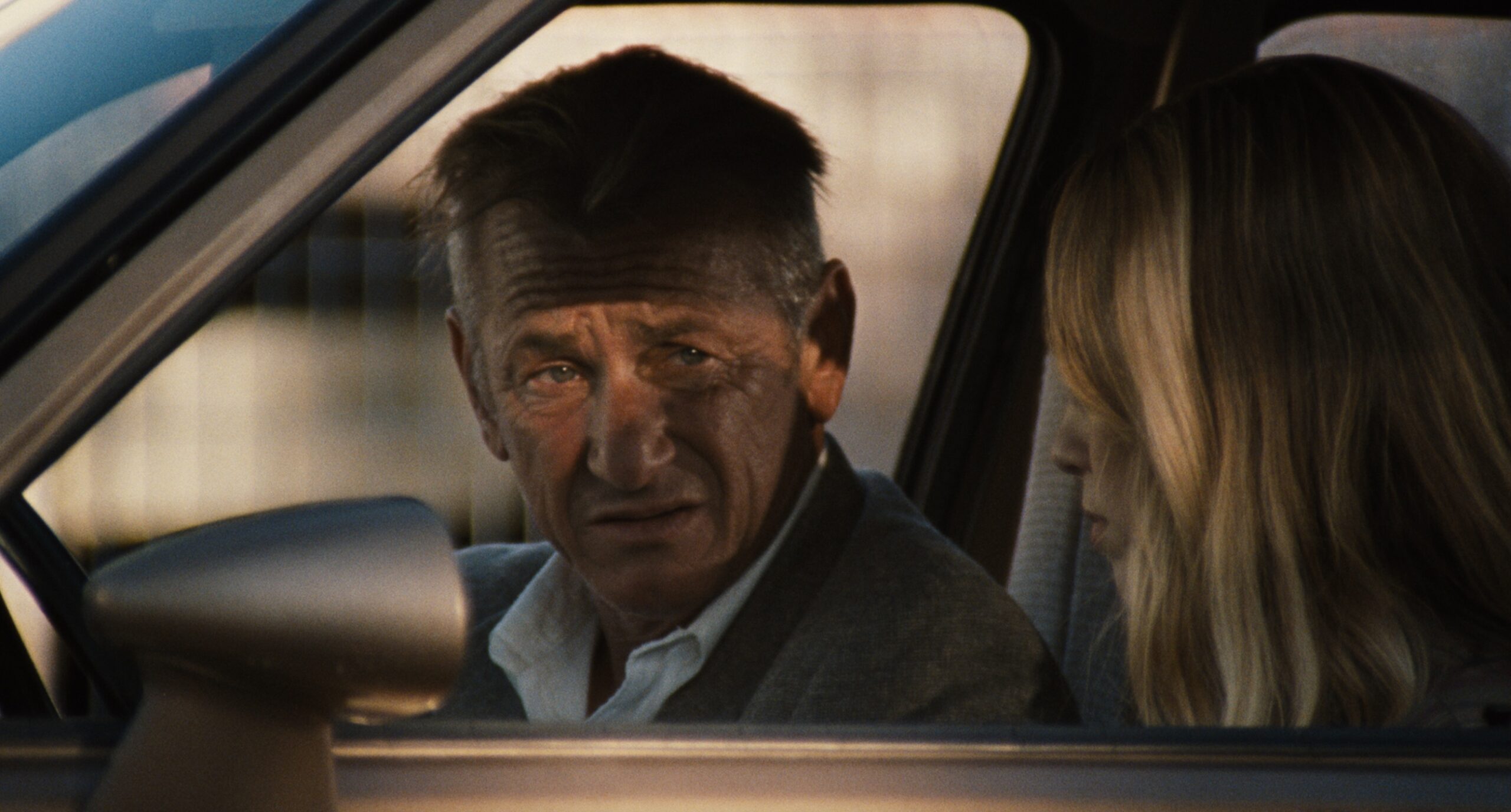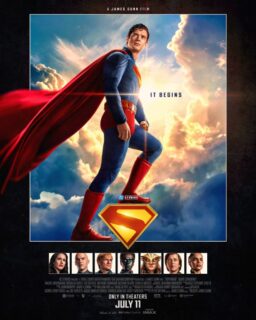The last time Sean Penn competed in Cannes with a feature he directed, he did so with “The Last Face” (2016), a movie that, in chronicling a romance between two aid workers in war-torn Africa, botched just about every element, starting with the opening text, which was so convoluted it quickly became a punchline. Cannes-goers who remember that reception no doubt approached Penn’s “Flag Day” braced for a fiasco, regardless of any solid movies (“The Pledge,” “Into the Wild“) that Penn had made in the past.
“Flag Day,” in which Penn casts himself as a terrible father and his son and daughter as his character’s long-suffering children, turns out to be merely purple—a heavy-handed, maladroit take on material that required a sensitive touch. Based on Jennifer Vogel’s book Flim-Flam Man: The True Story of My Father’s Counterfeit Life, which has been adapted for the screen by the brothers Jez Butterworth (“The Ferryman”) and John-Henry Butterworth, it plays like a film that a lot of different families brought their baggage to bear on.
The movie begins in 1992, when Penn’s character, John Vogel, has jumped bail, having been accused of passing $50,000 in counterfeit bills (and of printing more than 400 times that amount). This sets up the expectation of a crime movie, but it’s a fakeout. Through the eyes of Jennifer (played by Dylan Penn from high school onward), “Flag Day” flashes back to 1975 to tell the story of Jennifer’s dawning awareness of who her father is and how he ticks.
We quickly learn that John was absent from long stretches of Jennifer’s childhood and evasive about his line of work. John’s trouble, according to Jennifer’s mother (Katheryn Winnick), is not even that he’s a serial liar and scammer. It’s that he believes the nonsense he spouts. His birthday is June 14. “You never trust a bastard born on Flag Day,” says John’s mother (Dale Dickey), clarifying why an otherwise minor detail should serve as this movie’s title.
So long as the film sticks with Jennifer alone, it is a richly detailed portrait of a girl who discovers she cannot trust either of her parents, and therefore has to raise herself. Her mother is alcoholic and takes up with a man (Norbert Leo Butz) who at one point sneaks into Jennifer’s bed and tries to assault her. Her father, only by dint of contrast, seems more stable, and certainly more fun—when the kids were young, he taught them to identify Chopin’s Nocturnes by number. But he’s also completely unreliable, with a spectrum of fibs. Sometimes he’s saving face; sometimes he’s engaged in full-fledged scheming. The elder Penn does make clear how John could take people in: Late in the film, when Jennifer unplugs a phone that John appears to be talking into, it’s hardly shocking to discover that he’s been lying. But it is a little surprising that he’s not even speaking to someone on other end.
Sean and Dylan Penn’s scenes together are the heart of the film, and watching the two of them converse, you see one actor having a breakthrough—and it isn’t Sean. Covering a range of ages and phases in Jennifer’s life, Dylan proves to be a moving and multifaceted performer. It’s a pity she’s playing opposite her dad, who badly needs a director to say no to every smirk and raised eyebrow; with each tic, he undermines his own material. He may well have been going for a sleazy-salesman vibe, but in close-up he looks more like a vivified chunk of leather with facial hair (and a distracting succession of ‘dos).
Despite a striking, mildly grainy look (it was shot on film), the style of “Flag Day” is also all over the map. It’s possible the 1975 scenes are supposed to reflect Jennifer’s idealization of her childhood, but the way Penn interweaves rural scenery and overwritten voice-over, they play more like his attempt to remake “Days of Heaven.” This not the context for that brand of poetry.
Also in competition, “Compartment No. 6” is the Finnish director Juho Kuosmanen’s first feature since “The Happiest Day in the Life of Olli Maki,” which won the top prize in the festival’s Un Certain Regard section in 2016. But it takes place not in Finland but in Russia, where Laura (Seidi Haarla), a Finnish student with an interest in archaeology, is living in Moscow. She’s supposed to take a trip to see the petroglyphs in Murmansk with her landlord and lover, Irina (Dinara Drukarova), who pointedly introduces Laura to others as her “Finnish friend.” But Irina decides to stay behind. Whenever Laura calls her from stops along the slow-moving journey (it’s still the payphone era), Irina is bad about picking up, or quick to get off the phone. There is giving your girlfriend a hint, and then there is literally shipping her off to the Arctic Circle.

Laura ends up sharing a train compartment with Ljoha (Yuriy Borisov), a boisterous, ribald miner who appears as mismatched with her as he could possibly be. He’s going to Murmansk for work and doesn’t comprehend her desire to go to such a remote place to see rock carvings. And from this setup, you might expect “Compartment No. 6” to turn into an odd-couple comedy. What’s initially frustrating, and ultimately endearing, about the film is that it refuses to go that route, or even to be especially funny. Kuosmanen is after something more bittersweet and elusive, a story of two people who learn to trust each other because they are given the time do so—and because there are few others who have the patience for them.
(One side note: This is the second festival movie of the year to make repeated and striking use of the song “Voyage, Voyage” by Desireless, and I have to put in a plug for the other one—Ramon Zürcher’s “The Girl and the Spider,” which is terrific. It screened at the virtual Berlin Film Festival earlier this year, and with any luck it will be released in the United States soon.)
Cannes always seems to include at least one film in competition that speaks specifically to French social issues. That’s clearly the case with Catherine Corsini’s “The Divide,” which mostly unfolds over the course of one night in a public hospital in Paris. Raf (Valéria Bruni Tedeschi) slips and breaks her arm chasing after her wife, Julie (Marina Foïs), who is preparing to leave her. With their relationship teetering, they have to put their hostility on hold while Raf, increasingly loopy on painkillers, waits in an emergency room to be seen.
But it’s the night of a yellow vest protest, and the hospital doesn’t have the resources to attend promptly to the many injured people who have arrived at its doors. They include Yann (Pio Marmaï), a truck driver who gets into a political argument with Raf about who—the working class or the bourgeoisie—should be blamed for voting for far-right politicians. Meanwhile, a nurse (Aissatou Diallo Sagna) continues to tend to patients despite having the fact she’s working well beyond her legally mandated maximum of weekly shifts.

The French title, “La Fracture,” evokes Raf’s broken arm; in English, “The Divide” should probably be plural: This is a film that sets up contrasts between rich and poor, left-wing and right-wing, black and white, and so on. The problem is that the movie aims to do little more than offer diagnoses of various ailments afflicting France. The characters are in effect caricatures, written as mouthpieces to raise particular issues. That is all fine as far as it goes; so, too, is the restricted setting, even if it looks like it was selected as a pandemic workaround. But “The Divide” is not the kind of film that travels well.












